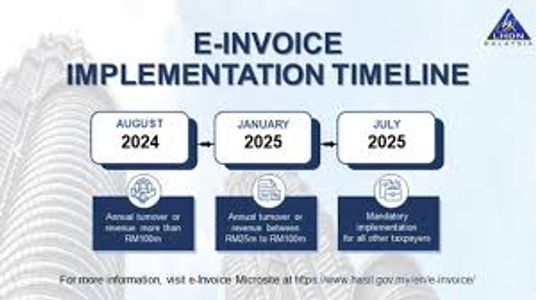E-Invoicing in Saudi Arabia: Understanding Compliance, Implementation, and Apps
 Guest Post
26 Jan, 2025
6 mins read
63
Guest Post
26 Jan, 2025
6 mins read
63

E-invoicing is revolutionizing how businesses operate in Saudi Arabia, fostering efficiency, transparency, and compliance with VAT regulations. This article dives deep into e-invoicing in Saudi Arabia, highlighting its benefits, compliance requirements, implementation process, and the role of e-invoicing apps in streamlining operations.
What is E-Invoicing in Saudi Arabia?
E-invoicing, or "Fatoorah" in Saudi Arabia, refers to the electronic issuance, storage, and submission of invoices. Implemented under the mandate of the Zakat, Tax and Customs Authority (ZATCA), this system replaces traditional paper invoices to enhance transparency in business transactions and combat tax evasion.
Key Features and Benefits of E-Invoicing
- Transparency: Tracks business transactions with digital records, minimizing discrepancies.
- Efficiency: Automates invoicing, saving time and resources.
- Tax Compliance: Ensures adherence to VAT laws and reduces the risk of errors.
- Environmental Impact: Reduces paper consumption, supporting sustainability goals.
E-Invoice Compliance in Saudi Arabia
To comply with ZATCA regulations, businesses in Saudi Arabia must follow these guidelines:
- Adopt Approved E-Invoicing Solutions: Businesses must use ZATCA-certified e-invoicing software that meets the technical requirements.
- Mandatory Fields: Invoices should include specific details such as VAT registration number, QR code, invoice date, and buyer/seller information.
- Two Phases of Implementation:
- Generation Phase: Businesses must generate and store electronic invoices in a structured format.
- Integration Phase: E-invoicing systems must be integrated with ZATCA’s platform for seamless data sharing.
Steps for E-Invoice Implementation
- Understand the Regulations: Familiarize yourself with ZATCA’s guidelines and deadlines for e-invoicing.
- Select an E-Invoicing Solution: Choose a ZATCA-compliant e-invoicing app or software that suits your business needs.
- Train Your Staff: Educate employees on using the new e-invoicing system.
- Integrate Systems: Ensure your invoicing system is linked with ZATCA’s platform.
- Test and Go Live: Conduct tests to ensure seamless operations before fully transitioning.
E-Invoice Apps: The Role of Technology
E-invoicing apps simplify the process by providing businesses with user-friendly tools for creating, storing, and submitting invoices. Key features of these apps include:
- Automated Calculations: Eliminates manual errors in VAT computation.
- Customizable Templates: Allows businesses to generate invoices tailored to their branding.
- Real-Time Integration: Ensures instant communication with ZATCA’s platform.
- Data Security: Protects sensitive financial data through encryption.
Some popular e-invoicing apps in Saudi Arabia include Zoho Invoice, QuickBooks, and Saudi-specific solutions like Fatoora.
e invoicing saudi arabia is revolutionizing how businesses manage financial transactions by mandating compliance with digital invoicing regulations. The implementation of e invoice systems ensures transparency, efficiency, and adherence to ZATCA guidelines. Businesses are required to use approved e invoice app that facilitate seamless integration with ZATCA’s portal, offering features like VAT calculations and real-time reporting. To achieve e invoice compliance, companies must follow the regulations for generating, storing, and integrating electronic invoices, including using QR codes and cryptographic signatures. Proper e invoice implementation involves selecting the right solutions, training staff, and monitoring systems to ensure ongoing adherence, ultimately supporting Saudi Arabia’s digital transformation goals.
Challenges in E-Invoice Implementation
While e-invoicing offers numerous benefits, businesses may face challenges such as:
- Initial Costs: Investing in software and training can be costly.
- System Integration: Ensuring compatibility with existing ERP systems requires careful planning.
- Compliance Complexity: Navigating technical requirements and maintaining compliance can be demanding.
Conclusion
E-invoicing is a critical step in modernizing Saudi Arabia’s economy. By embracing this system, businesses can streamline operations, ensure compliance with VAT regulations, and contribute to a more transparent and efficient marketplace. With proper planning, the right tools, and compliance with ZATCA guidelines, the transition to e-invoicing can be seamless and rewarding for businesses of all sizes.
Written By:
Guest Post



Hotels at your convenience
Now choose your stay according to your preference. From finding a place for your dream destination or a mere weekend getaway to business accommodations or brief stay, we have got you covered. Explore hotels as per your mood.





